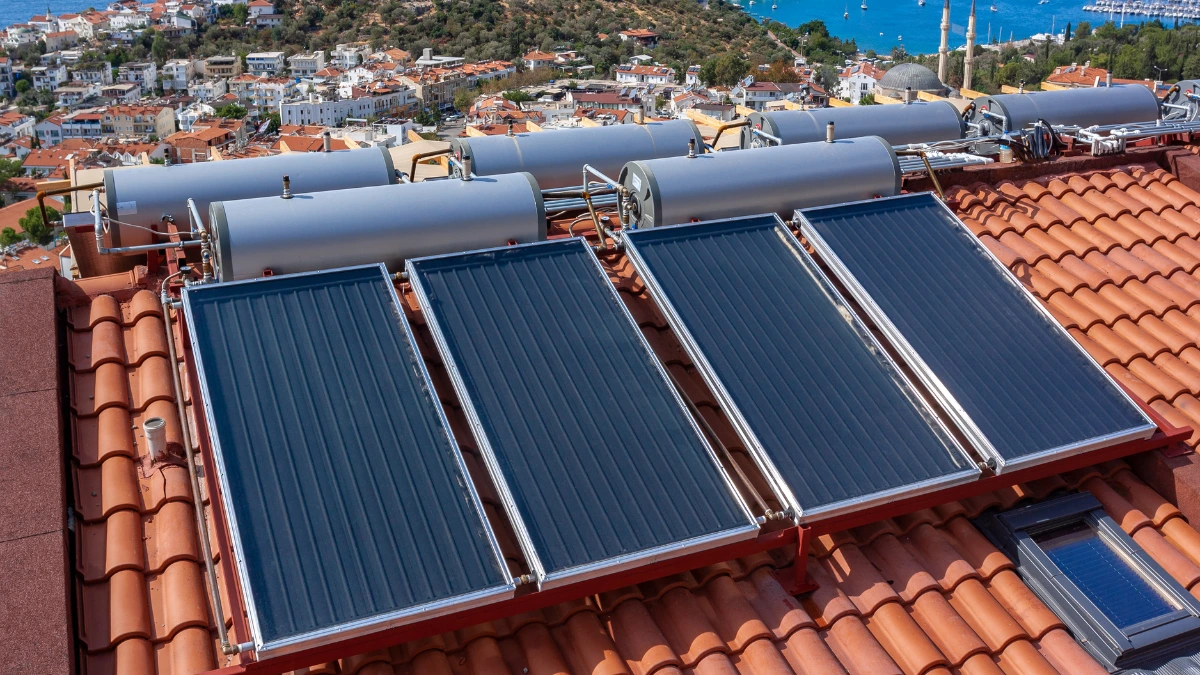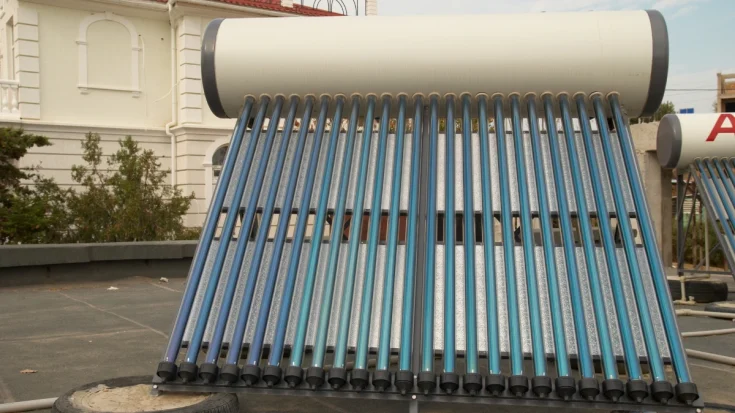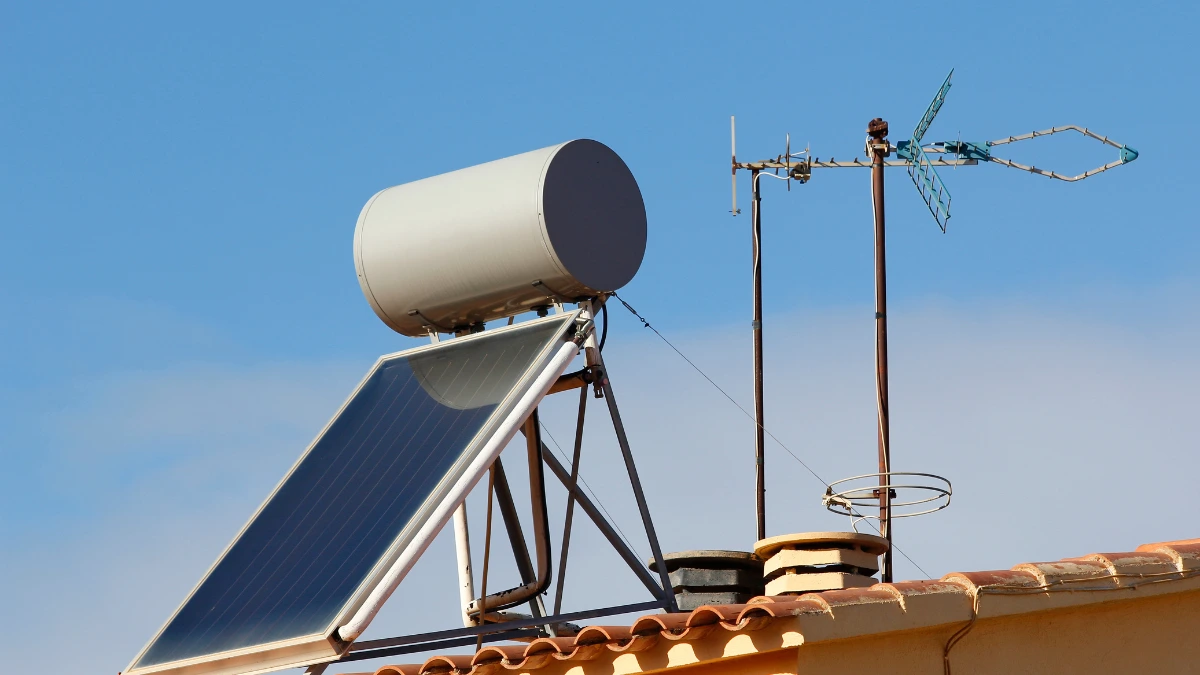The presence of a solar power system provides maximum sustainable energy use to increase productivity. One type of solar power system, according to its configuration and use, is the solar water heating system, which offers several key functions and advantages.
The functions of a solar water heating system include providing hot water in an environmentally friendly way. Moreover, the advantages include providing consistent hot water, long-term investment, and saving operational cost.
This article will give you information on solar water heating systems, including definitions, functions, and the advantages they have.
What is a Solar Water Heating System?

A solar water heating system is a type of solar panel system that is designed not to produce electricity but to heat water. The system is designed with components that aim to heat water to the desired temperature.
Solar energy will be converted into heat that is used to heat water stored in a tank, which can then be distributed for various purposes such as bathing, washing, or cooking.
The Functions
The solar water heating system has several functions, from hot water provider to environmentally friendly. Here are some of its functions:
- Hot water provider: Can produce hot water that can be used for various purposes.
- Energy saving: Helps reduce energy consumption from other sources such as electricity or gas.
- Environmentally friendly: Reduces greenhouse gas emissions by using solar energy as an environmentally friendly energy source.
The Advantages of Solar Water Heating System

The solar water heating system has several advantages, from providing consistent hot water and long-term investment to saving operational cost. Here are some of its main advantages in detail:
1. Provides consistent hot water
One of the advantages of a solar water heating system is that it provides consistent hot water. Users can still have hot water availability even in extreme weather conditions with the support of this system.
2. Easy maintenance
Easy maintenance is another advantage of the solar water heating system. The components of this system are designed to be durable, so they do not require significant maintenance during reasonable usage.
3. Long-term investment

By using a solar water heating system, you need to invest more at the beginning. However, in the long run, you can save sustainable energy.
4. Increasing property value
Increasing property value is another advantage of a smart water heating system. This system is an energy-efficient and environmentally friendly solution, so it can increase the selling value of your property.
5. Save operational costs
Another advantage of using a smart water heating system is that it can save operational costs. This system will help reduce electricity or gas bills for water heating, so those who use hot water intensively do not need to worry about soaring electricity bills.
Those are the definitions, functions, and advantages of a solar water heating system that you need to know. Another thing to note is that solar power systems on the market must pass the certification test from the Directorate General of Digital Infrastructure (DJID).
Smart solar power system regulation is based on the Ministerial Decree (KEPMEN) No.260 of 2024 and No. 12 of 2025, which requires all radio frequency-based devices to meet specific technical standards before being sold in the country.
With a DJID certification, users can feel calm about using a smart solar power system device whose quality and security are guaranteed. For manufacturers or importers of smart solar power system devices, obtaining certification from DJID is a mandatory step before the device can be officially marketed in Indonesia.
To simplify the certification process, Type Approval Certification Services for ICT Products are available to assist with this process as a reliable solution. [UN].

